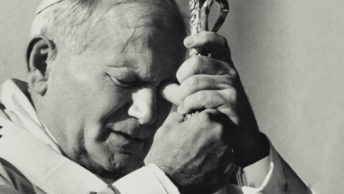According to the Merriam-Webster dictionary, unworthiness may be defined as: (a) that which is lacking in excellence or value; (b) not meritorious; (c) not deserved; or (d) inappropriate to one’s condition or station.
Now in our day, the mere thought that one might be unworthy of something seems foreign. After all, we are living in a time when the promotion of self-esteem is worshipped. In a June 2010 Psychology Today article entitled, Popular Culture: America’s Self-esteem Problem, Dr. Jim Taylor stated that we need look no further than the bewildering popularity of reality-TV shows and the instant celebrity garnered from its inhabitants—despite their complete absence of qualifications. Self-esteem “is commonly thought of as how we feel about ourselves, our appraisal of our own self-worth. But real self-esteem is a complex attribute that has become one of the most misunderstood and misused psychological characteristics of the last 40 years.”
Following the misguided advice of such so-called experts, many parents raised their “Johnny” and “Susie” to believe that they were the “best.” As Taylor recounted, “parents were told to praise and reinforce and reward their children no matter what they did. The result: lower self-esteem and children who were self-centered and spoiled.” But when reality was measured, another world resulted. When markers on the field were drawn, our darlings were not the fastest and most agile. And when standardized tests were administered, the results proved inconsistent with the high marks Johnny and Susie had “earned” in the classroom. In the aftermath of this, and with the proverbial rubber having met the road, it could truly be said that they were—unworthy.
And while this may sound harsh, this is where I’ve been headed all along. Using a word search of the Revised Standard Version Bible (Catholic Edition), unworthiness is found multiple times:
Sirach 10:19 “What race is worthy of honor? The human race. What race is worthy of honor? Those who fear the Lord. What race is unworthy of honor? Those who transgress the commandments.
2 Mac 14:42 “Preferring to die nobly rather than to fall into the hands of sinners and suffer outrages unworthy of his noble birth.”
Luke 17:10 “So you also, when you have done all that is commanded you, say, ‘We are unworthy servants, we have only done what was our duty.'”
Acts 13:46 And Paul and Barnabas spoke out boldly, saying, “It was necessary that the word of God should be spoken first to you. Since you thrust it from you, and judge yourselves unworthy of eternal life, behold, we turn to the Gentiles.”
1 Cor 11:27 “Whoever, therefore, eats the bread or drinks the cup of the Lord in an unworthy manner will be guilty of profaning the body and blood of the Lord.”
Prior to our reception of Holy Communion, we speak powerful words that remind us of our unworthiness that come from the Gospel of Matthew (8:5-13)—The Healing of the Centurion’s Servant:
As he entered Capernaum, a centurion came forward to him, begging him and saying, “Lord, my servant is lying paralyzed at home, in terrible distress.” And he said to him, “I will come and heal him.” But the centurion answered him, “Lord, I am not worthy to have you come under my roof; but only say the word, and my servant will be healed. For I am a man under authority, with soldiers under me; and I say to one, ‘Go,’ and he goes, and to another, ‘Come,’ and he comes, and to my slave, ‘Do this,’ and he does it.” When Jesus heard him, he marveled, and said to those who followed him, “Truly, I say to you, not even in Israel have I found such faith. I tell you, many will come from east and west and sit at table with Abraham, Isaac, and Jacob in the kingdom of heaven, while the sons of the kingdom will be thrown into the outer darkness; there men will weep and gnash their teeth.” And to the centurion Jesus said, “Go; let it be done for you as you have believed.” And the servant was healed at that very moment.
From his own mouth, the centurion acknowledged his own unworthiness. And what did Jesus do? He marveled!
So, what should we make of our own unworthiness? By following the pop-Psychology of our day, we could deny this reality. Or instead, we could enter into Wisdom and see that through the Incarnation, Passion, and Resurrection, our fallen humanity has been purchased at the highest of costs. And that despite our unworthiness, God’s love eternally surrounds and beckons us. And waits.
For our— yes.








